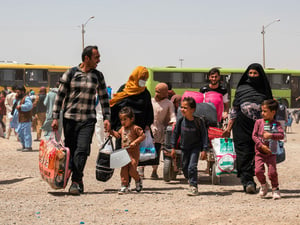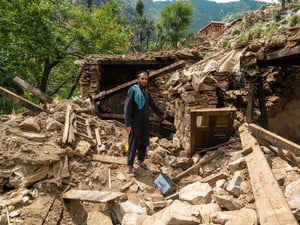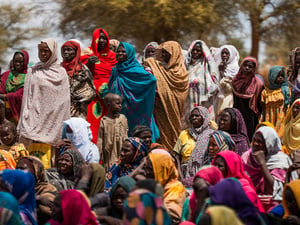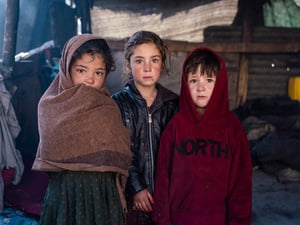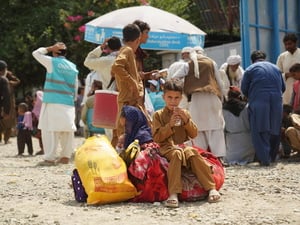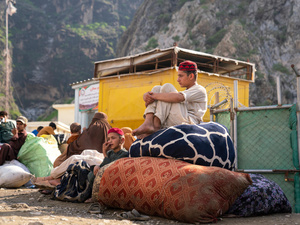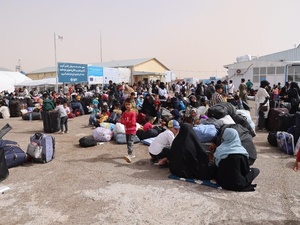Afghan returns cross 100,000 mark in first five months of 2003
Afghan returns cross 100,000 mark in first five months of 2003

Afghan returnees from Pakistan receiving a warm family welcome in Kabul.
KABUL, May 22 (UNHCR) - More than 100,000 Afghan refugees have returned home so far this year - just one-quarter of those repatriated over the same period last year - but more are expected to follow when security and job prospects improve in Afghanistan.
On Thursday, the UN refugee agency announced that the number of Afghans returning home under its voluntary repatriation programme this year had crossed the 100,000 mark. This includes over 65,000 from Pakistan and nearly 35,000 from Iran.
"The return figures are much lower than last year's - by the end of May 2002, there were 400,000 returns - but we are seeing a similar trend in the increase in the rate of returns in spring," said UNHCR spokeswoman Maki Shinohara at a news briefing in Kabul.
"Returning refugees say that more Afghan families will return if security is improved - especially in the southern provinces - and if there are more job prospects and reconstruction inside Afghanistan," she added.
UNHCR has repeatedly stressed that repatriation should be voluntary and gradual, in view of insecurity in parts of Afghanistan and the limited absorption capacity of the war-torn country.
This point was supported by Pakistan's Minister of Kashmir Affairs, Northern Areas and States and Frontier Regions, Aftab Ahmed Khan Sherpao, when he visited Kabul this week. Meeting with UNHCR staff in the Afghan capital, he reaffirmed Pakistan's commitment to ensuring the voluntary nature of Afghan returns, and pledged continued support to rebuild Afghanistan.
Within Afghanistan, more than 25,000 internally displaced people have gone home this year with assistance from the UN refugee agency and the International Organization for Migration (IOM), many from the western and northern parts of the country.
Ethnic Tajiks also started returning to the central province of Bamiyan this month, as UNHCR assisted 126 displaced ethnic Tajik families to return to Bamiyan city from areas in eastern Bamiyan province where they had fled due to the war. This return marked the first movements of displaced Tajiks back to the Hazara-dominated Bamiyan region.
The returning families, whether former refugees or displaced persons, all receive packages of UN food aid, blankets and other relief items. Fifty Tajik families whose homes were heavily damaged were provided with tents. They may also qualify for UNHCR shelter assistance to rebuild their homes.
UNHCR field staff operating in Bamiyan monitored the initial reintegration of the returning Tajiks, who did not encounter any significant problems. Another 856 Tajik internally displaced people from 147 families currently residing in Baghlan province have also volunteered to return to 21 villages in Bamiyan and Saighan districts in a joint IOM-UNHCR operation.
Last year, the UN refugee agency and its partners helped some 1.8 million Afghan refugees and 250,000 internally displaced Afghans to return home. Many more went back on their own.
This year, UNHCR plans to assist up to 1.5 million Afghans home, including 600,000 from Pakistan, 500,000 from Iran, 100,000 from other countries, as well as 300,000 internally displaced Afghans.
But funding for the refugee agency's repatriation and assistance operations in Afghanistan remains tight. UNHCR has so far received only $72 million, or 37 percent of the $194 million required for repatriation and reintegration projects in Afghanistan.

